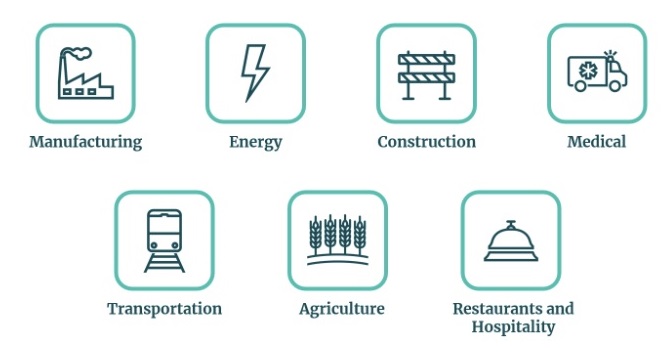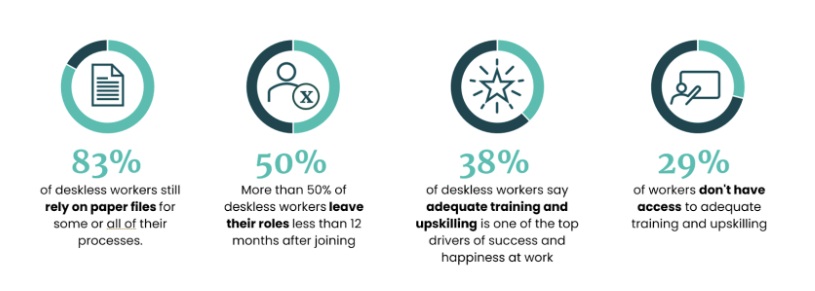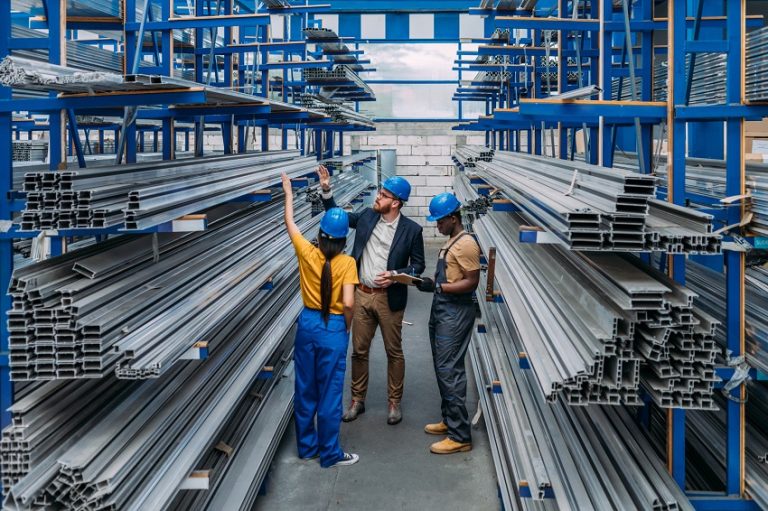In the dynamic landscape of today’s workforce, a significant majority of employees find themselves without a fixed desk, navigating the intricacies of their roles through hands-on experiences. These deskless workers form the backbone of industries such as construction, transportation, agriculture, and manufacturing. Surprisingly, the Learning and Development (L&D) market has largely overlooked their unique needs.
Defining Deskless Workers: A Workforce in Motion
Deskless workers are those without a designated workspace, constantly on the move to accomplish their tasks. As they contribute to the backbone of industries, it’s imperative that their learning needs are not only acknowledged but actively addressed.
A few examples of deskless workers:

Safety First: Tackling Work-Related Accidents
Every year, the United States witnesses approximately 340 million work-related accidents, with industries like construction, transportation, and manufacturing bearing the brunt of preventable injuries. Robust safety and compliance training become paramount in these sectors, ensuring that every worker is equipped with the knowledge and skills needed to navigate potential hazards safely.

How Learning Platforms Can Support the Learning Needs of Deskless Workers
In response to the unique challenges faced by deskless workers, innovative learning platforms are emerging to bridge the gap between traditional training methods and the dynamic nature of their roles.
Observational checklists: To effectively track skills, companies need to transition from traditional pencil-and-paper assessments to dynamic, real-time performance-based assessments. This shift ensures a quick and accurate evaluation of employee competencies, promoting adherence to formal training beyond the training room.
Flexible Workflows: Deskless workers require technology that seamlessly integrates online and on-the-job training. Organizations must have the ability to create flexible workflows, tracking essential activities such as reviewing and signing off on Standard Operating Procedures (SOPs) or demonstrating machine operations safely, all with managerial oversight.
Data-Driven Dashboards: Dynamic, personalized dashboards mapping key performance indicators and skills for each individual become invaluable. These dashboards automate On-the-Job Training (OJT) by providing users with competency profiles, showcasing current proficiency levels and areas for improvement.
Career Pathways: With more than 50% of deskless workers leaving their jobs within a year, addressing the issue of isolation and fostering a sense of belonging becomes crucial. Platforms like Totara’s Talent Experience Platform (TXP) offer solutions like Totara Engage, enabling collaboration, coaching, and resource sharing, along with the creation of career pathways for employees.
Central Repository for SOPs: In high regulatory environments, SOPs are vital. Totara Engage provides a centralized repository, making it easy to search, share, and bookmark the latest versions. Users can curate their personal resource library, fostering collaboration and ensuring easy access to critical documentation.
Achievement Paths, Flexible Reporting, Mobile-Friendly Tools, Compliance Audits: Totara TXP encompasses multiple features like achievement paths, flexible reporting, mobile-friendly tools, and compliance support, making it a comprehensive solution tailored to the needs of deskless workers.
Next Steps: Empowering Deskless Workers with Totara’s TXP Platform
Discover how Totara’s TXP Platform and its flexible tools are revolutionizing the landscape of on-the-job training for deskless workers. Join the wave of innovation and ensure your workforce is equipped for success in any environment.






